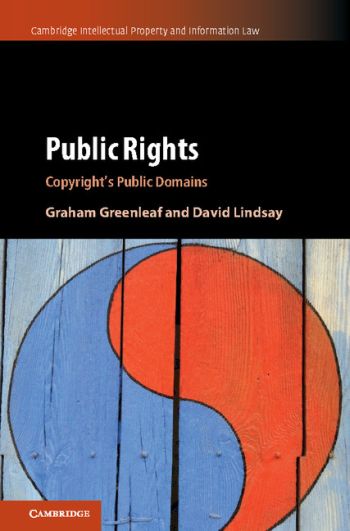
Access to works in the public domain is an important source of human creativity and autonomy, whether in the arts, scientific research or online discourse. But what can users actually do with works without obtaining the permission of a copyright owner? Readers will be surprised to find how many different kinds of permitted usage exist around the world.
This book offers a comprehensive international and comparative account of the copyright public domain. It identifies fifteen categories of public rights and gives a detailed legal explanation of each, showing how their implementation differs between jurisdictions. Through this analysis, the authors aim to restore balance to copyright policy debates, and to contribute to such debates by making practical law reform proposals. A major intervention in the field of intellectual property law and copyright, this book will appeal to lawyers, scholars and those involved in the administration of copyright law.